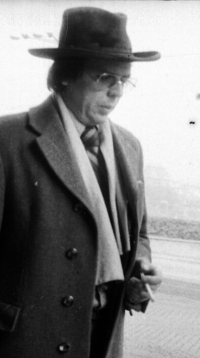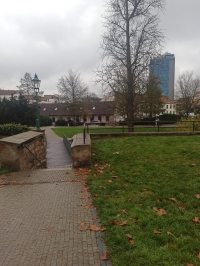I tried to live my life in a way that I could look everyone in the face, and never have to be ashamed of anything

Stáhnout obrázek
Ilja Šedo was born on May 5, 1951 in Mariánské Lázně to a Russian emigrant Antonín Šedo. However, he spent a significant part of his life in Pilsen. When he commenced his studies at a secondary school of civil engineering, the Prague Spring just came, and he was expecting significant changes. The events of August 21, 1968 came as a shock to him, same as to many others. He no longer trusted the Party and did not think it would ever change. By coincidence, however, he joined the Borderline Guard at the beginning of normalization, specifically the Debrník company near Železná Ruda. Two years later he returned to the West Bohemian city, but at the time he started to face lengthy health issues. At the age of 22, he received a harsh diagnosis - multiple sclerosis, which he has been fighting all his life. Despite his health problems, he decided to stand up to the communist regime and he signed the Charter 77. Because of this, the StB (State Security Service) then terrorized him for several years, until the fall of the regime. After 1989, he graduated in library science at the Faculty of Philosophy at Charles University and continued to work at the West Bohemian Museum in Pilsen, which helped him a lot with finding a job when he first fell ill. In 2022 he is still working there as a librarian.

